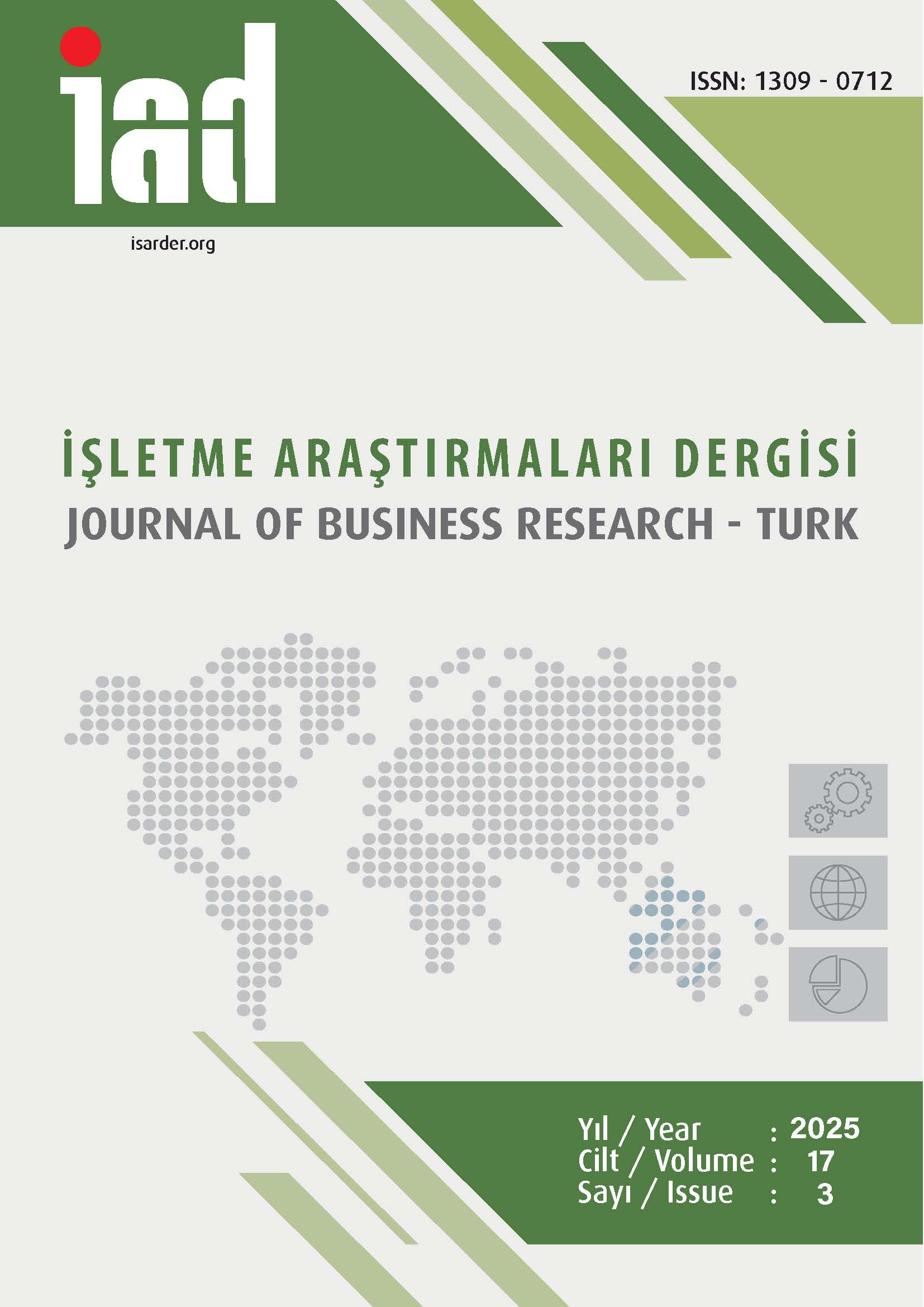Adaptation and Validation of the Creative Performance Pressure Scale in the Turkish Context
DOI:
https://doi.org/10.20491/isarder.2025.2098Keywords:
Creative Performance Pressure (CPP), Creative Requirements (CR), Organizational Creativity, Routine Performance Pressure (RPP), Well-Being, Work StressAbstract
Purpose – The primary aim of this study is to adapt the Creative Performance Pressure scale developed by Liu et al. (2022) into Turkish and to comprehensively evaluate its factor structure and reliability. Additionally, the Routine Performance Pressure (Mitchell et al., 2018) and Creative Requirements (Unsworth et al., 2005) scales were also adapted into Turkish and assessed through convergent and divergent validity analyses, thereby contributing to the comprehensive validation of these measures. The second aim, aligned with the first, is to examine the effects of creative performance pressure, routine performance pressure, and creative requirements on employee well-being, work stress, and organizational creativity through these scales. Within the scope of this second aim, the study also seeks to establish the predictive validity of the scales.
Design/methodology/approach – Collaborative translation technique was used to ensure conceptual and linguistic equivalence of the scale items. Structural validity was tested through confirmatory factor analysis, while internal consistency was assessed using Cronbach’s alpha and composite reliability coefficients. Predictive validity was examined via path analysis. Differences between public and private sector white-collar employees were analyzed using multi-group analysis. The study is theoretically grounded in Cognitive Appraisal and Conservation of Resources theories.
Results – The adapted scales demonstrated satisfactory levels of structural validity and reliability for use in the Turkish context. The results revealed significant sectoral differences in the perception of performance pressures and creative requirements, which were found to influence levels of work stress, organizational creativity, and psychological well-being.
Discussion – By adapting these scales into Turkish for the first time, the study contributes to the local literature. The findings emphasize that the impact of creative demands and pressures varies across sectors. Therefore, sector-specific strategies are needed to manage work-related stress effectively and foster creativity. Moreover, a balanced and mindful approach to managing these pressures is essential for safeguarding and improving employees’ psychological well-being.
Downloads
Published
How to Cite
Issue
Section
License

This work is licensed under a Creative Commons Attribution-NoDerivatives 4.0 International License.





